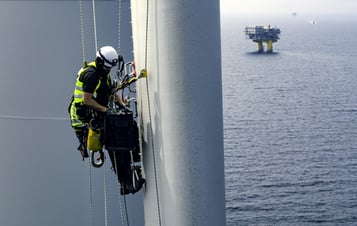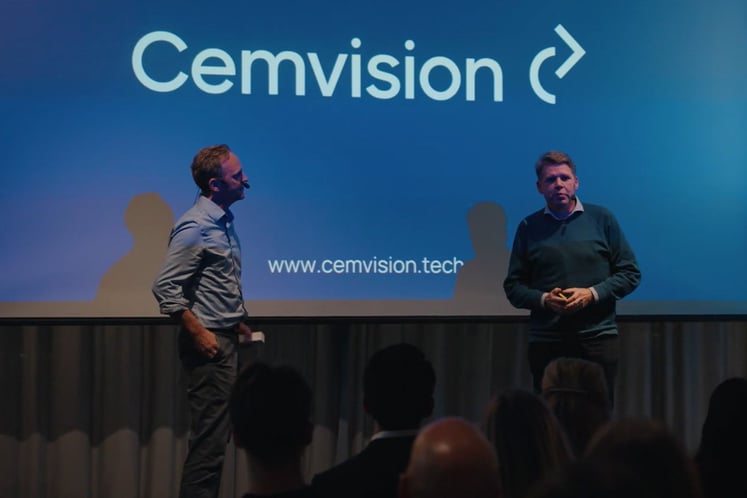Supply chain initiatives
Vattenfall is involved in several supply chain initiatives.
Our ability to have impact on sustainable practices among our suppliers, both first tier and further down our supply chain, is limited if we act alone.
We believe that partnerships and collaborations offer the greatest opportunities for positive impact and therefore we take part in various supply chain initiatives.
World Nuclear Association
Vattenfall has long been an active member of the World Nuclear Association, and participated in the Uranium Stewardship Programme, which defines ten principles for managing radiation, health and safety and environmental issues. The aim of the resulting joint policy document 'Sustaining Global Best Practices in Uranium Mining and Processing' was to maintain best practices and promote them to new participants in the uranium supply chain. An internationally standardised audit checklist for joint audits of mines supports the policy document.
Vattenfall is an active member of the recently established World Nuclear Association ESG Working Group.
RECOSI – Responsible Commodities Sourcing Initiative
Vattenfall is a founding member of the Responsible Commodities Sourcing Initiative (RECOSI), a non-profit organisation set up by large utilities who recognise that by working together they can have a much greater impact on improving the sustainability performance of their commodities supply chains. RECOSI aims to drive continuous improvement in responsible commodity sourcing, working with companies to improve how they produce energy commodities and align with international best practice. RECOSI guides and supports its members in their due diligence monitoring of supply chains and supports producers in enhancing their environmental, social and governance (ESG) performance.
The organisation’s work initially focused on coal, through the Bettercoal Programme, and it has now expanded to cover natural gas. Building on over a decade of experience in undertaking ESG assessments of mine sites, operating an international standard and assurance framework for coal, and involving Equitable Origin as its technical partner, RECOSI is currently working collaboratively with stakeholders to establish its Gas programme.
The Wind Europe initiative
The Wind Europe Sustainability Taskforce members have identified supply chain sustainability as a very relevant topic for the industry in order to reduce costs, anticipate regulatory changes, manage risks and increase collaboration, while also contributing to the achievement of the UN’s Sustainable Development Goals.
The aim of the project is to develop and adopt a wind industry approach for assessing, controlling and monitoring the supply chain. Several tasks have been identified that have led to the development of:
- Wind industry guiding principles on supply chain sustainability and reference framework
- A potential joint compliance process that could include developments such as the design of a common self-assessment questionnaire (SAQ)
- Joint capacity building activities and events.
Developing a common approach would empower the companies that adhere to this initiative to apply a powerful supply chain tool to control and impact sustainability related topics.
Solar Power Europe and Solar Stewardship Initiative
Establishing sustainable and robust supply chains is crucial to enabling a just transition to clean energy, according to Solar Power Europe. We fully agree and have actively supported Solar Power Europe in its sustainability work through participation in various workstreams.
Vattenfall is currently a member of the Solar Stewardship Initiative (SSI) and a committed supporter of its principles. The SSI plays an important role in promoting transparency, accountability, and sustainability in the solar supply chain, which closely align with Vattenfall’s own ambitions for responsible sourcing and supply chain integrity.
International RBC agreement for the renewable energy sector
The International Responsible Business Conduct Agreement for the Renewable Energy Sector is a broad coalition of solar and wind energy companies, industry associations, the Dutch government, knowledge institutions, NGOs and trade unions committed to making international value chains more sustainable. Vattenfall took part in the very first meeting some years ago and kept pushing to get the covenant agreed upon by relevant participants.
Vattenfall participated in the very first meeting several years ago and advocated to get the covenant agreed upon by relevant stakeholders.
We believe that collaboration is fundamental to create transparency, build leverage, and drive impact beyond legal compliance. While working together with peers and other industry partners is crucial, the true strength of the covenant is the multistakeholder approach at its heart. This approach will accelerate our understanding and enable effective impact, for example via different workgroups. One of these workgroups focuses on due diligence practices and aligning these with OECD guidelines, while another workgroup is focusing on collective actions in order to jointly raise the bar on specific sustainability issues.
First Movers Coalition
Vattenfall is a founding member of First Movers Coalition (FMC), established in 2021. FMC was launched by the US State Department and the World Economic Forum, and has grown to over 100 corporate members including global brands such as Boeing, Deloitte, Vestas, and Ford Motors.
The objective of FMC is to commercialise breakthrough technologies within hard-to-abate sectors, which will be required to reach net-zero emissions worldwide by 2050. Corporate members commit to procuring breakthrough materials and transport solutions at premium prices. This collective purchasing power sends a strong market demand signal to suppliers and manufacturers to develop technology that reaches commercialisation in time.
Vattenfall has made four FMC commitments: to procure 10 percent near-zero steel and 10 percent near-zero concrete/cement of our total volumes, to ensure that 5 percent of our business travels are covered by sustainable aviation fuels, and that our trucking service providers procure zero-emission trucks by 2030.
Video player requires marketing cookies.
To view this content please click here to allow marketing cookies.
Vattenfall presented the partnership with Cemvision to develop near-zero emission cement and a future market in connection with the First Movers Coalition commitments during a live event in Stockholm in 2024.
German Energy Sector Dialogue
Vattenfall is a permanent member of the German Energy Sector Dialogue, a multi-stakeholder forum that brings together relevant stakeholders from the energy industry, civil society organisations, business associations, trade unions and human rights experts, as well as the German government. The dialogue aims to address human rights and environmental risks in global supply and value chains relevant to the energy sector.
Respecting human rights is essential for a sustainable energy supply and long-term business success. We believe that collaboration in multi-stakeholder initiatives is key to tackle complex challenges and create impact by joining forces. Through the dialogue, Vattenfall contributes to joint efforts aimed at improving conditions in global supply chains. Vattenfall actively contributes to the dialogue, with a particular focus on two working groups: one addressing human rights and environmental risks in bauxite mining in Guinea, and another focused on risk prevention in the construction of large-scale energy infrastructure, including worker welfare.
By pooling expertise and resources, the dialogue aims to strengthen responsible business conduct and create meaningful impact across the energy sector.
Related content

Diversity, equity and inclusion are fundamental to our success.

We are responsible for respecting all internationally recognised human rights agreements.

Health and Safety is a key component in running a sustainable business.




